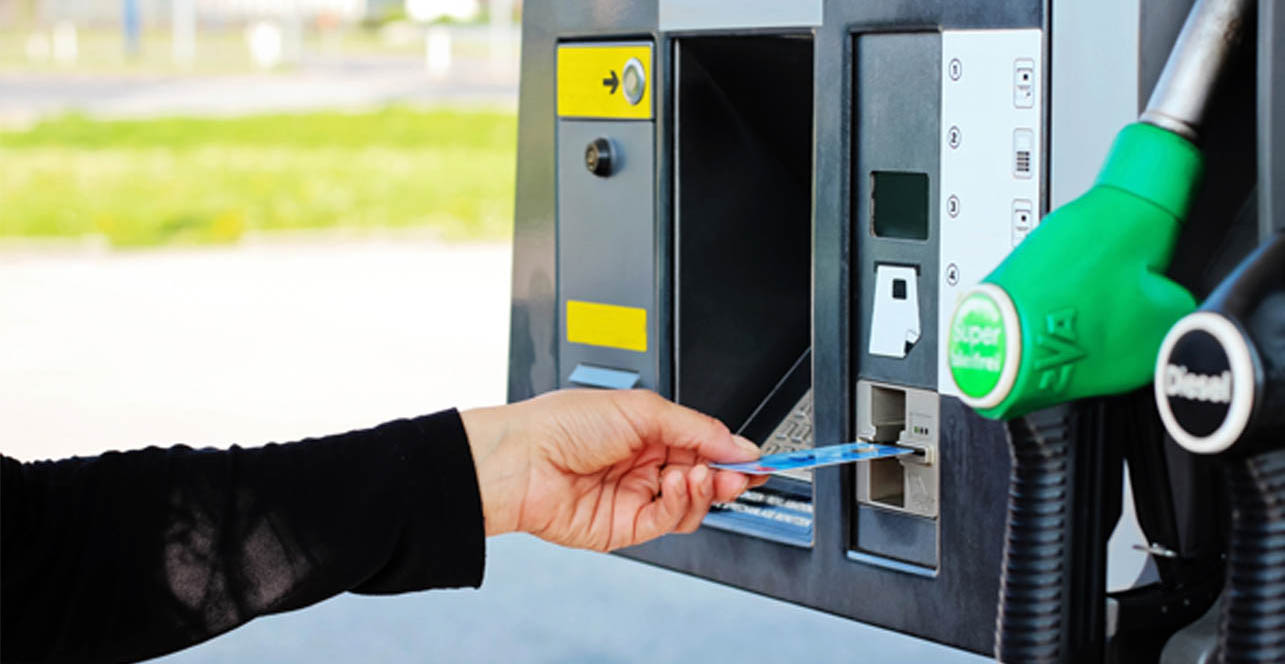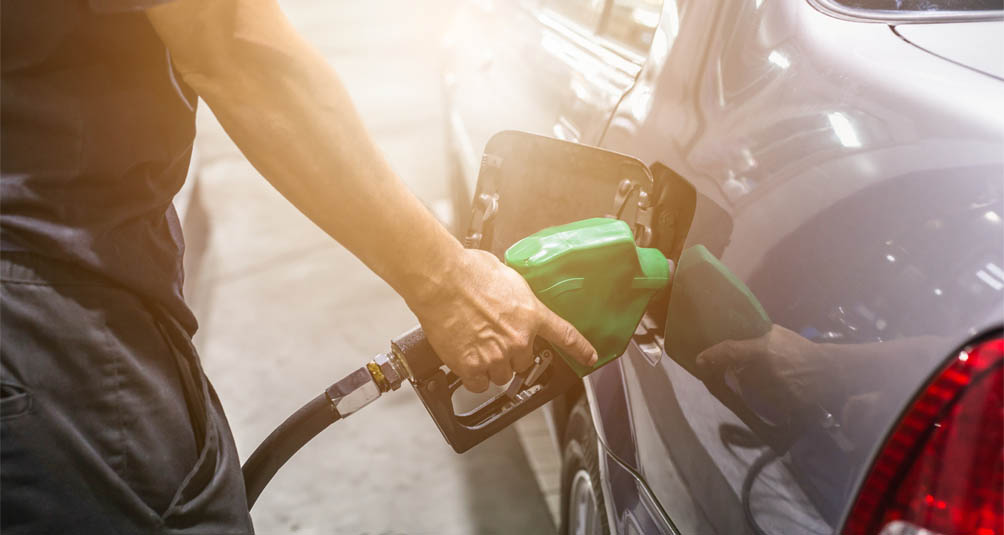Learning Zone
Fuel fraud: are you losing out?
Spot the Signs of Fuel Fraud & Save Money
Managing fuel costs can be a complex process, especially when taking into consideration the risk and consequences of fuel fraud…

Unfortunately, fuel fraud is a fact of life for many fleets – and one that’s costly – so it’s vital that you have the means to highlight a number of tell-tale signs for spotting it. For example, you should ask yourself:
- Do mileage figures provided by the driver correlate with odometer readings?
- Does the volume of fuel listed on a receipt exceed the vehicles’ maximum fuel tank capacity?
- Has the driver purchased the correct type of fuel?
- Is the vehicle’s MPG reading unusually low?
If the above questions reveal discrepancies and the numbers don’t quite add up, you may be a victim of fuel fraud.
Common Crimes
Fuel fraud presents itself in many different shapes and sizes so, in order to prevent it from happening within your business, it’s important to understand the different types and how they occur.
Mileage Creeping:
This refers to inflating mileage figures on fuel reclaims, and is one of the most common forms of fuel fraud.
Fuel Deceit:
This refers to numerous fraudulent actions including filling non-approved vehicles, over-fueling and side fueling, when the driver pumps fuel into a side container for personal use.
Fuel Card Fraud:
An increasingly common form of fraud, this refers to inflating fuel card transactions, sharing fuel cards and authorising multiple pump purchases.
Fuel Type Fraud:
This simply means purchasing the wrong type of fuel, which indicates that the purchase has been made for an unauthorised vehicle.
Fuel Syphoning:
This occurs when fuel is removed from the tank of a vehicle, for personal use. On occasion, the driver will also refuel his or her authorised vehicle.
As you can see, there are many different variations of fuel fraud, however, untoward activity will only be detected if receipts are being checked against vehicle specifications.
According to a ‘Fraud Matters’ study conducted by Shell, as many as 93% of fleet managers believe that some drivers are involved in fraudulent activity, and more than a quarter of drivers have admitted to witnessing deceitful activity at work.
Prevention – Is It Possible?
Put simply, yes. There are numerous ways to crack down on fuel fraud, however, some methods can be time-consuming if relying on manual processes, and your company may still be vulnerable.
Some of the preventative actions you can take include:
Allocating Fuel Cards and PIN Numbers
Firstly allocating fuel cards gives you way more control over the purchasing of fuel, but it’s also worth prompting drivers to enter a personal identification number when using them. This makes it more difficult for drivers to swap fuel cards and easier to perform regular fraud checks on fuel management systems.
Implementing Fuel Limits
Many fuel cards have the option of pre-funding, so drivers can only ‘top-up’ a certain amount.
Checking Refueling Frequencies
Is a driver stopping multiple times on any one route or day, unnecessarily? If yes, they might be “double-billing” and frequent refueling checks will uncover this type of activity.
Conducting Manual Cross-checks
It’s important to cross-check all receipts and bank statements with a fine tooth-comb, to make sure that drivers are providing you with the ‘full picture’. This, however, is a manual process that can be time-consuming and error-prone.
Highlighting Consequences
Ultimately, you should make the consequences of fraudulent actions clear to your drivers. Fuel fraud is a criminal offence, but some drivers may not understand just how serious it is.

Automated Solutions
Fleet managers struggle to tackle fuel fraud without implementing good security controls and comprehensive reporting systems, as error-prone paper processes do not allow for tight data controls – drivers may forget, have bad writing or simply lie about the mileage driven on behalf of the company.
The use of fuel management software can help to automate the reporting and analysis of fuel purchasing, at the same time highlighting fueling discrepancies and eliminating error-prone, time-consuming administration tasks.
Having a comprehensive overview of your fleet’s fuel usage will help to eliminate as many fraud variables as possible and, making use of certain data and analytic capabilities will help to control costs and eliminate fuel fraud.
Business Barriers
A survey conducted by Shell revealed that approximately 65% of company car fleet managers in the UK now see fuel related fraud as a major issue for their business, and nearly 48% think that more should be done to tackle the issue.
There are, however, a set of common barriers that prevent fleet managers from taking the necessary action. The study found that…
- 37% of fleet managers lack driver awareness
- 32% lack time to invest in fraudulent activity
- 30% lack financial resources
- 20% lack key data required to identify fuel fraud
- 19% don’t consider the threat to be serious
According to Shell, 48% of fleet managers think that improving practices to tackle fuel fraud could reduce fuel spend by 5% or more, so investing in fleet management software could well be worth the time and money.
Common Challenges
Here are two of the most common challenges you may face, and how fuel management software can help to tackle the problem:
Fueling a Non-fleet Vehicle:
Fuel fraud can take the form of filling a non-fleet vehicle during an authorised transaction. It’s as simple as using the same pump to fill two vehicles on opposite sides of the fuel island.
Fuel management software can alert you to this fraudulent practice by identifying an accurate mileage reading, the vehicle’s fuel tank size, average fuel economy and the amount of fuel purchased, to highlight any potential purchase discrepancies.
Inflating Business Mileage:
Fuel fraud can involve inflating business trip mileage when a personal or mixed-use vehicle is in operation.
Fuel management software can be used to identify this fraudulent practice by comparing mileage – which drivers are required to record – with integrated telematics data, that uses GPS to record time-and-date-stamped start-to-end locations for each trip.
Take Away Facts
Fuel costs represent a large part of a fleet’s operating expenses and, only by ensuring your business has a place to record and audit both business and personal mileage, can those costs be kept in check and fraud eliminated.
The fact of the matter is, when it comes to combating fuel fraud, paper processes should not be used. Fuel management database systems with tools to report and anaylse fuel not only remove the administrative challenges of spreadsheets or paper, but can automate communication to drivers and managers on things such as tank capacity over fueling ,wrong fuel types and much more.
Other, semi-automated processes can be adopted too, however, great importance should be placed on educating your drivers on fuel fraud, allowing them to think smarter.




